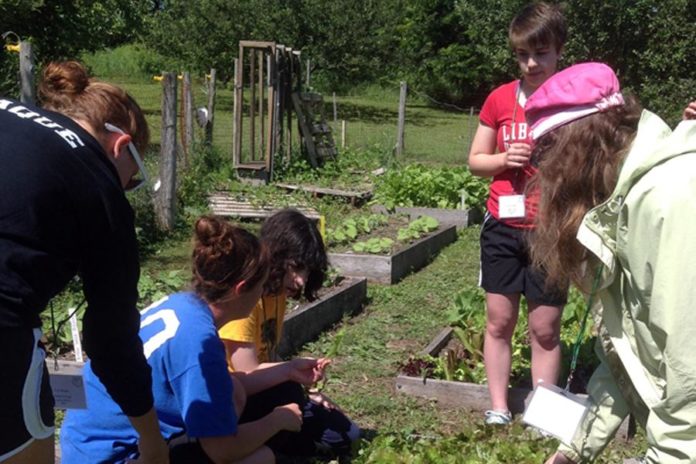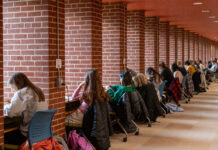This year marks the second year that the Therapeutic Recreation: Accessing Independent Leisure and Social Skills, TRAILS, program will be helping those in the autism spectrum community learn social skills, teamwork, communication, and have fun all while doing it.
Dr. Elizabeth Kemeny, a Therapeutic Recreation professor, runs the program to not only help the autism community, but also help students of Slippery Rock University get hands on experience working with clients for one of her classes.
“I started the program because I wanted my students to have a more hands-on component of class,” Kemeny stated.
Recently, the TRAILS program received a $5,000 grant, from the Autism Opportunities Network Inc., AON, which was started by an SRU alumnus, Roger Dunlap, Kemeny explained.
The TRAILS program involves activities that include horseback riding, hiking on the sensory trail, horticulture in the greenhouse and participating in engagement games all at the Storm Harbor Equestrian Center, Kemeny said. The point is to focus on social skills, conversing with others and pre-employment skills.
“We may play Apples to Apples, but throughout the game we focus on conversing, engagement, eye contact and feeling comfortable while playing the game,” Kemeny explained.
According to Kemeny, some of the short term outcomes of the TRAILS program has been more social skills, leisure skills, and day-to-day skills and helping the clients feel more comfortable.
The program is free for all clients, but all activities still cause an expense that includes the equestrian center, the sensory trail, the high ropes course, bowling and other programs and trainings, that is why the most recent grant from AON is important to keep the program running, Kemeny said.
“The Slippery Rock Foundation had a meeting with Roger [Dunlap], so the money is not really a grant, but more like a gift or donation,” Kemeny stated.
Along with the donation from AON, the TRAILS program has also received a $4,000 grant from Autism Speaks, another partnering non-profit organization, and another $9,000 from PASSHE, explained Kemeny. The PASSHE grant was used to help three senior SRU students, those who had already participated in the program as volunteers, become peer service leaders.
“The peer service leaders, added another layer of leadership to the program, helping both the clients and the volunteers,” Kemeny said.
In the future, Kemeny hopes to expand on the activities offered to possibly add archery.
“I would like to add more activities, so that we are constantly changing up what we have to offer,” Kemeny said.
One of the main components of the TRAILS program is horseback riding through the Storm Harbor Equestrian Center.
Courtney Gramlich, the director of the Storm Harbor Equestrian Center, explained that there are about 20 to 25 clients that come to the center to participate in the program ranging from ages 14 to 18.
“The horses help with social skills, because one day they could only talk to the horses, but the next feel more comfortable to talk to the person about the horse,” Kemeny further explained.
“The kids relate to the animals really well,” explained Gramlich. “They open up to the horses.”
Gramlich also explained that horseback riding acts as a physical activity for the clients. The feeling of riding a horse is similar to how humans walk, so riding a horse is relaxing, she further explained.
According to Autism Speaks, one in 68 people have autism spectrum disorder. Kemeny believes that with it becoming so prevalent, it is great for students who plan on being a recreational therapist, to have experience with clients who have the disorder compared to just reading it in a book.
“Everything I do benefits my students and the clients within the TRAILS program,” Kemeny said.








